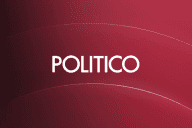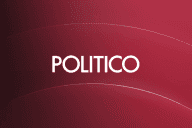— French President Emmanuel Macron’s big Artificial Intelligence Summit kicks off in Paris. We have the latest.
— A key set of European Union AI rules are under pressure from U.S. Big Tech. The topic could pop up again and again in Paris.
— Important provisions of the EU’s media freedom law kicked in on Saturday.
Good morning and welcome to Morning Tech. Hi, this is Pieter, writing this with a view of l’Arc de Triomphe. If you’re in Paris, reach out!
As always, send the hottest tech policy news and gossip to Pieter, Mathieu and Eliza.
WELCOME TO PARIS, THE CITY OF LIGHT AI: Bonjour, allô. We’re there. Morning Tech’s Pieter is speaking to you from Paris, where the AI Action Summit kicked off. French President Emmanuel Macron wants to show that France can lead in artificial intelligence.
“The future of AI is a political issue and an issue of sovereignty and strategic dependence,” Macron wrote in a LinkedIn post on Sunday ahead of the summit’s start. On Instagram, he struck a completely different tone, mocking several deepfakes of him doing the rounds.
Where the fun is at: The official part of the summit takes place today and tomorrow at the Grand Palais and is attended by a series of world leaders, including the European Commission’s Ursula von der Leyen, Henna Virkkunen and Stéphane Séjourné, U.S. Vice President JD Vance, and Indian Prime Minister Narendra Modi, who co-hosts the event. There will also be industry executives such as OpenAI’s Sam Altman, Anthropic’s Dario Amodei and Mistral’s Arthur Mensch.
But equally as fun is the series of side events, fireside chats, and cocktail parties all across the city of light —a feast that already kicked off over the weekend.
Google sees opportunities over risks: On Sunday afternoon, Google gathered at its Paris AI lab for an event with Demis Hassabis, the chief executive of Google’s DeepMind (and a recent Nobel Prize winner), and James Manyika, the company’s senior vice president for research.
Manyika said aloud what everyone had already been discussing in private: the opportunities of AI are much more top of mind at the summit than the risk stemming from the technology —a shift compared to earlier summits, such as the U.K. one in November 2023 that focused on AI safety.
“I think one of the things that is exciting about this summit … it has given much greater focus on the opportunities of AI, in addition of course to thinking about risks, and regulation,” Manyika said.
“Too often, many of these conversations have been just focused on the risk and complexities,” he said.
Don’t mention the AGI: When asked when he expects we will reach artificial general intelligence, the moment when AI will match human capabilities, Hassabis said: “We’re close.”
“Maybe we’re only perhaps five years or something away from a system like that.” He warned that society should prepare for this moment.
Don’t mention DeepSeek: The AI world is still reeling from the rise of DeepSeek, the Chinese open-source model that rose to prominence in January for showing how chatbots can be built without massive investment. Hassabis offered a reality check to the hype.
“There’s no actual new scientific advance here. It’s using known techniques. Actually many of the techniques we invented at Google,” he quipped. He applauded though how well-implemented they were and praised Chinese engineering skills.
The Brussels angle: The European Commission is present in Paris and has a lot on the line.
Since taking office in early December, the Commission’s top brass, and especially tech czar Henna Virkkunen, has delivered an AI pitch that is pro-business and pro-innovation. The EU’s executive has pivoted from focusing on AI safety and governance to innovation and investment. Read a deep dive about that here.
Virkkunen can now bring that pitch to a global stage. According to her schedule, she’s expected to participate in a workshop today on the EU as “an AI continent. » This has become Virkkunen’s catchphrase after she first floated the idea at her hearing.
Regulation, too: Yet, the Commission’s AI Office still has its hands full with regulation, too, as the AI Act gradually kicks in over the next year and a half. A key part of the AI Act, a voluntary set of rules for the most advanced models operated by OpenAI and others, is increasingly in peril.
Big Tech’s criticism: Last week, Google’s chief lobbyist Kent Walker and his Meta counterpart Joel Kaplan slammed the drafting of the EU’s code of practice for general-purpose AI . They claimed that the draft code has provisions that go beyond the EU’s AI Act or put an unworkable burden on the industry.
The AI Office’s response: Lucilla Sioli, boss of the EU’s AI Office, responded at an event hosted by the Tony Blair Institute on the sidelines of the summit on Sunday, stressing that the EU didn’t see any « trade-off » between regulation and innovation.
She called for “constructive collaboration” with tech companies and said the legislation was “very targeted” but struck a cautious note on how many companies will sign up to the code of practice: “We will see how many companies are willing to sign. »
More to come? The thorny topic of the code of practice could pop up again today.
Virkkunen will join a panel about « voluntary engagements » moderated by Sioli at 10 a.m. Yoshua Bengio, the Canadian computer scientist who helped draft the code of practice, will also attend.
The real political action: Today is only the appetizer. The plenary with all the heads of state and government leaders takes place on Tuesday morning.
AI and defense: A side conference this afternoon is dedicated to military AI. Even if France cannot master all the tech needed to develop artificial intelligence systems, it must create its own algorithms, AMIAD director Bertrand Rondepierre told Laura Kayali and Émile Marzolf in an interview. The capability to design algorithms is “non-negotiable,” he added. Read more here.
Read our full coverage: Expect much more coverage from the Paris AI Summit in the next couple of days. POLITICO’s Pieter Haeck, Océane Herrero and Tom Bristow are all on the ground and happy to chat.
Read up in the meantime:
— In an interview with POLITICO, Mistral CEO Arthur Mensch said that DeepSeek’s success offers a springboard for his own company.
— My Paris-based colleagues Émile and Tiphaine Saliou walk you through the agenda and the events you don’t want to miss.
— The French government has high hopes and big dreams for the summit, according to the dozens of documents we saw ahead of the meeting.
— Throwback Friday: The 15 days that upended Macron’s vision for European AI.
BEWARE, MEDIA CENSORS: Away from the AI Summit hype, Saturday marked the start of key provisions of the EU’s media freedom law, which will supposedly help rein in creeping state influence over newsrooms and foster pluralism — that is if the bloc is determined enough to stand up to its autocrats.
Just in: As of Saturday, national governments can no longer « interfere in or try to influence the editorial policies and editorial decisions. » Fingers crossed it sticks. The rest of the regulation, including more prescriptive rules, will kick off in August.
ERGA is dead, long live the Board: The European Regulators Group of Audiovisual Media Services, — or ERGA in short — has also now officially become the European Board for Media Services with added responsibilities like overseeing the application of new rules and mediating disputes between online platforms and media companies over undue takedowns of posts or restrictions. National watchdogs are meeting today for the constituting meeting.
« It’s much more than just a procedural step, » Democracy Commissioner Michael McGrath told Morning Tech. « The Media Board will play a key role in ensuring the independence and diversity of media across the European Union, which are pillars of a healthy democracy, » he added, underscoring « it is vital that media remain free, pluralistic, and protected » and citing the EU’s ongoing effort « to build the European Democracy Shield. »
Hopes are high: Media companies across Europe are counting on it to deliver. « One of the new important tasks of the board is, of course, the organization of the structured dialogue between big tech platforms, media service providers and civil society, » Thomas Bergmann, a senior policy advisor at the European association of public broadcasters (EBU), said, stressing it will be « really crucial » considering the increasingly « hostile approach » towards what some of these big platforms call « legacy media. »
**The Munich Security Conference gathers everyone with a say in global defense and security, but what’s happening behind closed doors? With reporters on the ground, POLITICO Pro Defense finds out for you. Register to join us online and to receive our Pro Morning Defense newsletter.**
COMMISSION: In case you missed it at the top, this is the start of the AI Action Summit in Paris which EU tech boss Henna Virkkunen, her boss Ursula von der Leyen and her French colleague Stéphane Séjourné will attend.
Virkkunen meets with Macron, France’s Europe Minister Jean-Noël Barrot, Luxembourg Prime Minister Luc Frieden and digital minister Stéphanie Obertin, Singapore’s Digital Minister Josephine Teo and South Korea’s Yoo Sang-im. She also meets with Google CEO Sundar Pichai, former Google CEO Eric Schmidt, and ASML CEO Christophe Fouquet.
PARLIAMENT: It’s plenary week in Strasbourg, but the real fun for tech policy geeks is only on Tuesday with a debate on U.S. AI chip export restrictions.
MARK YOUR CALENDAR I: French lawmaker Sarah Knafo from the European Parliament’s far-right group Europe of Sovereign Nations will present her report on technology sovereignty to colleagues in the industry committee on March 17, her team told Morning Tech. A draft report on e-commerce compliance will also be up for consideration at the internal market committee on the same day with Italian center-right lawmaker Salvatore De Meo leading the drafting.
MARK YOUR CALENDAR II: The Commission has a roundtable for a potential Digital Services Act code of conduct for online advertising on Tuesday with another four workshops planned for March, according to an invitation seen by Morning Tech.
Faking it: Deepfake porn site’s link to tech companies. Bellingcat
Microsoft and Nvidia: The tech giants taking a quieter approach to Trump. New York Times




